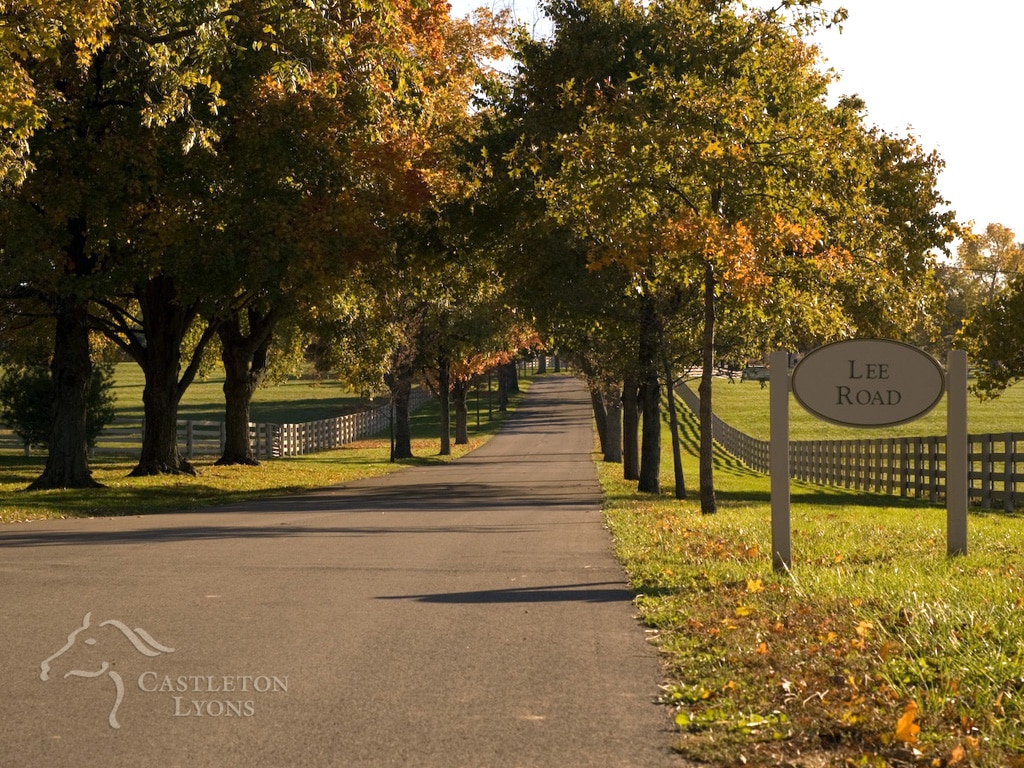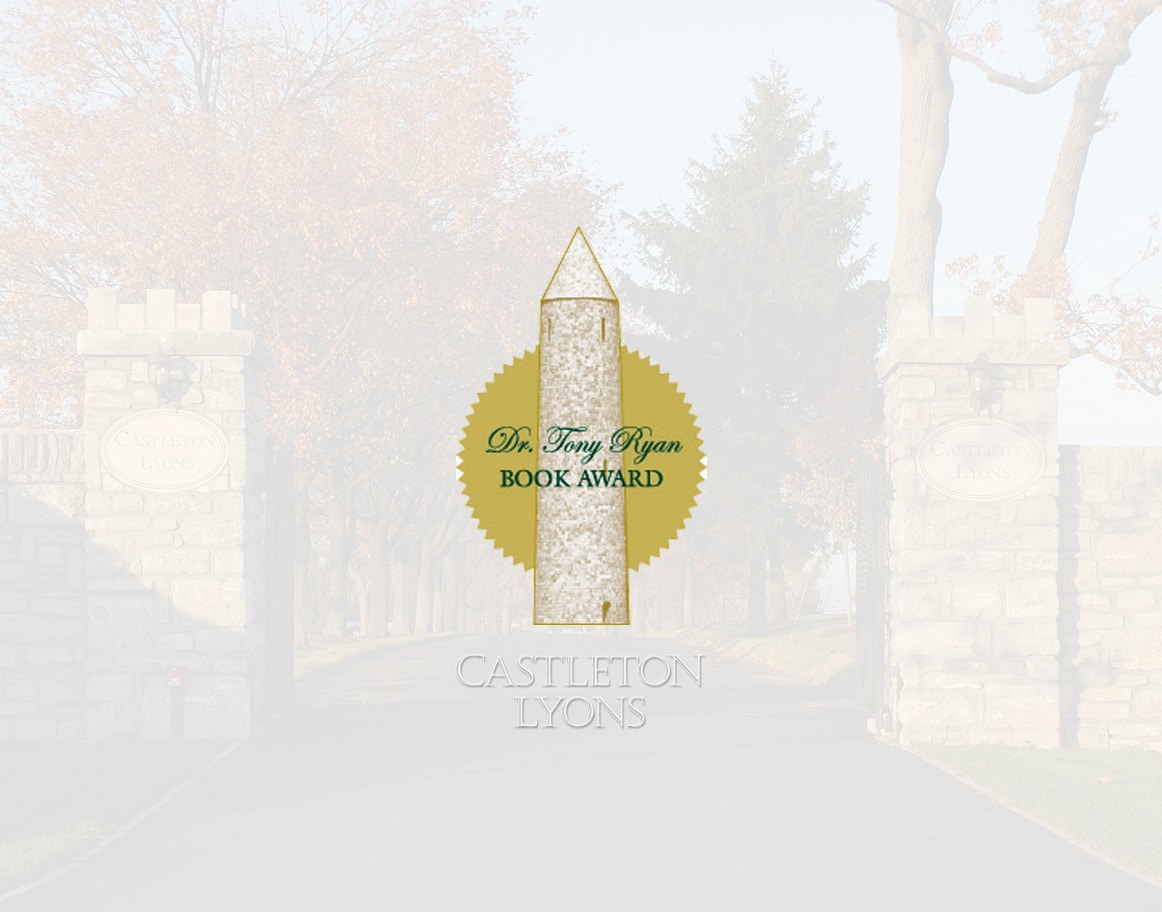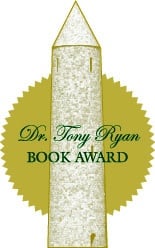GRAND NATIONAL TALE CAPTURES BOOK AWARD
By Mary Simon
BRITISH AUTHOR DAVID OWEN ACCEPTS THE 2013 CASTLETON BOOK AWARD AT A RECEPTION ON APRIL 9 IN LEXINGTON.
In 1967, a seven-year-old boy watched chaos unfold on a black-and-white television, as some two-dozen horses came to sudden grief at the 23rd fence of Aintree’s Grand National Steeplechase. Moments later, amidst the pandemonium of milling, riderless horses and stunned jockeys, a shadowy dark speck appeared at the far left of the screen, almost as an afterthought. The horse heaved itself over the 4-foot, 6-inch hedge and galloped off into the history books, an unfathomable 100-1 longshot by the name of Foinavon.
The little boy, David Owen, grew up to become a noted journalist. As sports editor for London’s Financial Times, he would cover the Beijing and London Olympics, and would interview some of the biggest names in international athletics … but never would he forget that moment of tumultuous wonderment captured on the family telly all those years before. Decades passed and the seed of an idea would laze far back in his mind before at last sprouting to life in the form of “Foinavon: The Story of the Grand National’s Biggest Upset” – a masterpiece of racing history, and winner of the 2013 Dr. Tony Ryan Book Award.
Horse racing has a centuries-long history of headaches, heartaches, and problems; there is always something dire that needs to be addressed, and now. But it also possesses a heart and glory unlike most any other sport, and because of this, for generations horse racing has inspired some of the best writers to apply pen to paper and pour out their stories in the most eloquent of terms.
The late Dr. Ryan recognized this confluence back in 2006 when he contemplated launching an award for book-length writing with horse racing as a backdrop. Dr. Ryan himself was special – a cutting-edge innovator with the heart of a poet. He loved good people, good horses, and good writing, and with the originally-named Castleton Lyons Book Award, to which he attached the extraordinary winner’s sum of $10,000, he was able to honor all three in one fell swoop.
“We created this award to promote the great sport of horse racing,” Dr. Ryan explained simply, when asked. “By recognizing and honoring outstanding literature, this helps do that.” Indeed, it would.
In 2007 the inaugural winner’s reception was held for the first time in a loft above the historic stallion barn at the Ryan family’s Castleton Lyons Farm near Lexington, Ky. Though in failing health, Dr. Ryan was there on that stormy night to personally honor New York Times writer Joe Drape, for Black Maestro: The Epic Life of an American Legend, about turn-of-the-20th century African-American jockey Jimmy Winkfield.
Dr. Ryan passed away late in 2007, but his son Shane would pick up the torch without missing a beat. On the evening of April 9, 2014, the eighth annual reception was held, once again, in the loft above the barn that formerly housed Racing Hall of Fame champions Domino, Commando, and Peter Pan, and today is home to Ryan homebred and triple Eclipse Award champion Gio Ponti. Once again, an eclectic assortment of racing enthusiasts, members of the media, political figures, academics, fellow authors – all bound together by the love of good literature – gathered to enjoy the festivities, to help crown a new winner, and to pay homage to the man who started it all.
The winner received a $10,000 check, while each of the two runners-up received $1,000. All three finalists received Tipperary Crystal trophies.
What the Author Said
The other two finalists were Dorothy Ours, for “Battleship: A Daring Heiress, A Teenage Jockey, and America’s Horse,” and Shelley Riley for her book on the horse she trained: “Casual Lies: A Triple Crown Journey.”
Each of the finalists discussed their book at the reception, and in Owen’s presentation, he said the following:
“Horse racing unites us … the wonder of one of nature’s most remarkable biological machines. But the British are different. Here in America you like to see merit rewarded. In Britain, the way society was structured with the famous class system, merit usually couldn’t be rewarded – not in real life. That meant when the pre-ordained order was overturned, people tended to cheer. So a lot of British sports watchers, including myself, still love the underdog. There is, however, one very specific exception to this rule. We love those underdogs except when they affect our pocketbooks. …
“When Foinavon raced, or plodded away, from the amazing pile-up which happened at the 23rd fence of the [1967] Grand National, it was accompanied by a distinct rustling sound all over the country – the sound of people screwing up their betting slips. At Aintree the pile-up happened about a mile from where most spectators were and nobody had a clue as to what happened, so when Foinavon came into view there was no applause, no cheers, only silence. … Foinavon, like Rodney Daingerfield, didn’t get no respect.
“On his great day and apart from three or four months when he became a national celebrity, he got very little respect. As the events became steadily mythologized, as they always are, Foinavon became the supreme example of a sporting flash-in-the-pan, uniquely favored by Lady Luck, his victory wholly ‘undeserved.’ And of course the people who worked with him got precious little respect or recognition either. …
“Since the word Foinavon had entered the lexicon as a byword for sporting calamity, the ultimate undeserving victor, I decided it was worthwhile to try and set the record straight, and while doing so to convey the sheer madcap wonder of one of the world’s ultimate sporting events.
“Yes, Foinavon, I reckon must be the slowest racehorse to have a book like this written about him – even I can see that – but he was, in his own way, a worthy winner.”


